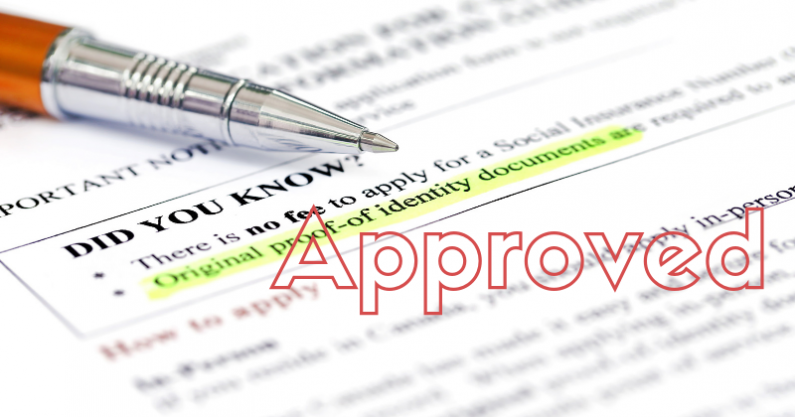A Temporary Resident Visa or visitor visa (TRV) is an official document placed in your passport that demonstrates to Canadian authorities that you have met the requirements for admission into Canada as a visitor, student or worker. Canada requires citizens of certain countries to obtain a TRV before they can enter Canada. If you want to study or work in Canada, you will need to apply for that document through a separate application.
We get a lot of people contacting Ackah Law after their tourist visa application to Canada is denied. if you have specific questions about your TRV, it is wise to consult legal experts to determine what requirements are in place for your country of origin.
BOOK YOUR FREE CASE EVALUATION
The Top 5 Reasons Why Canada Visitor Visas Are Denied
1. Misunderstand the test for issuing a visitor visa TRV
The rate at which Canada rejected Temporary Resident Visas (TRV) or Visitor Visa has increased to more than one-in-four in 2018, according to Immigration, Refugees and Citizenship Canada (IRCC). A visitor visa (or TRV) application is required from citizens of certain countries because the Canadian government considers citizens of those countries are more likely than not to overstay in Canada (that is, there is a risk that they will not return to their home country). Visitors are people who are not citizens or Permanent Residents of Canada, but who may legally enter the country for the purpose of vacation/holiday, visiting family, or attending business meetings. A visitor has a fixed or restricted length of stay in Canada and their visit is subject to various conditions.
The primary question in the visa officer’s mind when reviewing such an application is this: “Will this person return to his or her own country the visitor visa expires?”
The evidence you submit should help to prove your case that you will return after your visitor visa expires.
There are other considerations to qualify for a Canada visitor visa such as the ability to support yourself in Canada, which you should prove through bank statements or an invitation letter discussed below, or medical or criminal inadmissibility.
2. You submitted only the documents on the IRCC checklist
The documents that IRCC requires for a typical visitor visa (TRV) include: (documents can vary depending on your location and other circumstances):
- Forms
- Fees
- Photos
- Passport
- Proof of financial support
- Photocopy of your return ticket and/or travel itinerary
- Any additional documents required by the local visa office
IRCC/CIC has made a very useful checklist available online called the Document Checklist for a Temporary Resident Visa.
Often, submitting only those documents are not enough to make your case that you will return to your home country after your visit. Generally, it is wise to submit as much evidence as you can beyond the minimum required by IRCC. To qualify for a TRV, submit all documentation that demonstrates you meet the following criteria:
- Provide proof you will leave Canada at the end of the approved stay
- Provide proof you have the financial means to maintain your family or self, and return home
- Prove you will not work or study without authorization
- Provide proof of no criminal record
- Prove you do not pose a security or safety risk to the Canadian public
- Have all of the required documentation
- Prove you are in good health and not a risk to the health of the Canadian public
3. You didn’t submit evidence of all of your connections to your home country to prove you will return home
Many visitor visa applicants do not consider all of their connections to their home country and the evidence that proves it.
Obvious connections to your home are things like property and employment. Your TRV application should include copies of title deeds or lease agreements to property translated by a certified translator and detailed employment letters or contracts that identify you as a permanent employee of your employer, the length of your employment, your role at the company, and when you are expected to return to your employment.
There are other connections to your home country that are also proof you will return home.
- Are you a leader or an active member in a community organization or church? Get evidence of your role and duties.
- Do you care for aged family members? Get evidence of your responsibilities.
Some connections to your home country are difficult to document, which leads to reason number 4.

4. You didn’t submit affidavits to support your application
A sworn affidavit is considered legal evidence. If you have friends or family who can support your claims of connections to your home country for example, then you should have them swear affidavits to include with your TRV visitor visa application.
An affidavit is more powerful than a simple support letter as there are legal consequences for swearing a false affidavit, which makes them much more persuasive proof to your visa officer than support letters.
5. Your invitation letter was not detailed enough
As part of your reasons for visiting Canada and to show that you’ll have food and lodging in Canada, it is wise to get an invitation letter from your relatives (or friends) in Canada to support your TRV visitor visa application.
The invitation letter should not be too brief: it should be detailed and clearly state that this individual will provide free food and lodging for you during your entire stay in Canada.
It should include your full name and birth date, and also confirm the travel dates that you will be visiting in Canada.
More than that, it is essential that the invitation letter is signed by the individual, and have a contact phone number and address in case IRCC wishes to confirm this person’s intention.
Though not a very complex matter, TRV visitor visas must be applied for properly and in a timely manner. There are no guarantees about how quickly your tourist visa application can be processed, and it is best to get started as soon as you learn you will travel to Canada. Like any immigration application, there is no guarantee of success, but avoiding these 5 mistakes will give your application a better chance of success.





